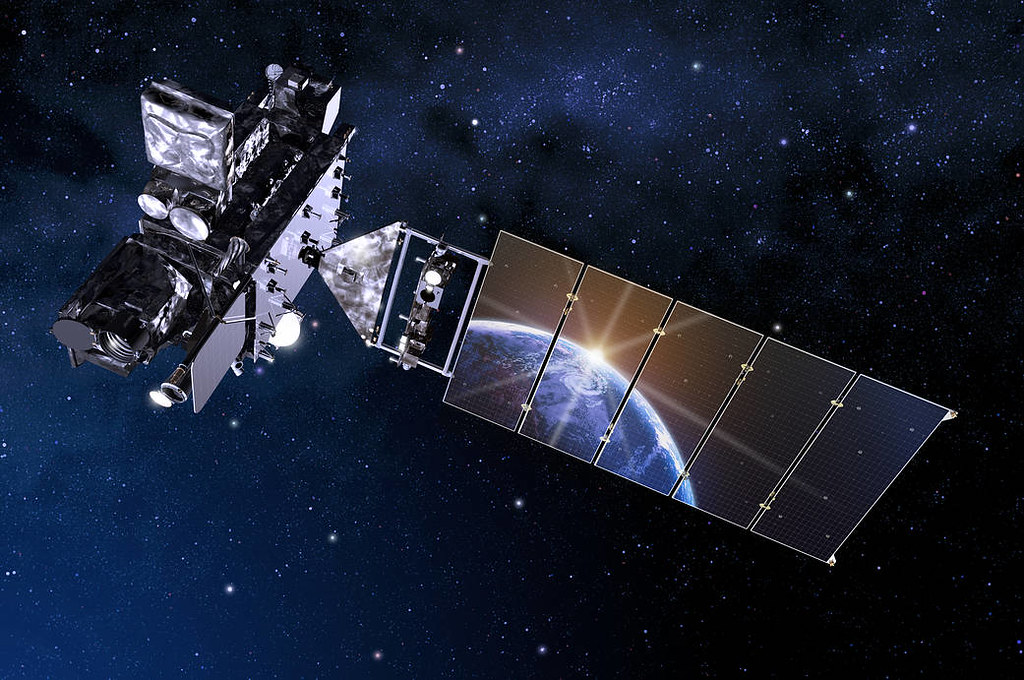Technological sovereignty is no longer just an economic concern—it is a matter of national security and disaster resilience. Moreover, Australia’s dependence on foreign-controlled AI and space technologies creates a serious risk. During critical moments, the country could lose access to vital services.
Recent events highlight this vulnerability. On March 7, 2025, Maxar Technologies, a U.S. aerospace firm, disabled Ukraine’s access to satellite imagery on the U.S. government’s Global Enhanced GEOINT Delivery (GEGD) system. This followed a U.S. decision to limit intelligence sharing with Kyiv. The move showed how foreign governments can block access to crucial technology for geopolitical reasons.
If it happened to Ukraine, it could happen to Australia. Imagine a catastrophic wildfire season. What if foreign-controlled AI wildfire detection, monitoring systems, or satellite services were suddenly restricted or deprioritised? With technology increasingly entangled in political agendas, Australia must secure its AI and space capabilities under national control.
The Risk of Foreign Dependence
Satellite Technology: A Vulnerable System
Satellites are critical in national security, environmental monitoring, disaster response, and wildfire monitoring. However, Australia does not own or control most of the satellites it relies on. Instead, it relies entirely on partner nations like the U.S., Europe, and Indo-Pacific allies and foreign commercial providers. This reliance comes with several risks:
- Restricted Access in a Crisis: The U.S. recently limited Ukraine’s access to satellite imagery, proving that political decisions can cut off essential services. If Australia faced diplomatic tensions, it could lose critical satellite data.
- Delayed Response Times: Australia does not control satellite imaging schedules. If foreign providers prioritize other regions, wildfire monitoring and emergency response could suffer delays, reducing the effectiveness of disaster management.
- Rising Costs and Market Volatility: Foreign satellite operators set prices based on commercial models. Consequently, Australia could face sudden price hikes for essential EO data, straining government and emergency response budgets.
- Security and Data Sovereignty Risks: Much of Australia’s satellite-based intelligence is processed and stored overseas. This raises concerns about data security and limits protections under domestic law.
A policy brief from the Australian National University (ANU) warns that Australia has no guarantee of uninterrupted access during geopolitical crises.
Key findings from ANU’s research:
- EO data contributes $3.2 billion annually to Australia’s GDP.
- The federal government spends $100 million annually to purchase EO data from foreign entities.
- Australia depends on timeshare agreements and reciprocal data-sharing arrangements with foreign space agencies.
- There is no oversight of commercial EO data quality, creating risks of unverified, manipulated, or inaccurate information.
If diplomatic ties weaken, Australia could suddenly lose access to EO data critical for disaster response (wildfires, floods or cyclones), climate monitoring, or agricultural planning. Furthermore, this loss would have far-reaching consequences for Australia’s national security and economy.
To address these risks, ANU recommends:
- classifying EO data as critical infrastructure,
- investing in sovereign EO capabilities, and
- leveraging Australia’s expertise in data validation to reduce foreign dependencies.
By taking these steps, Australia can secure its access to high-quality satellite data and strengthen its national resilience.
The Ukraine Satellite Blockade: A Wake-Up Call
 Fires in the exclusion zone near the Chornobyl Nuclear Power Plant in Ukraine – September 7th, 2022 by Pierre Markuse
Fires in the exclusion zone near the Chornobyl Nuclear Power Plant in Ukraine – September 7th, 2022 by Pierre Markuse
Recent events underscore these dangers. In March 2025, Maxar Technologies, a U.S. aerospace firm, disabled Ukraine’s access to satellite imagery following a U.S. government decision to limit intelligence sharing. The consequences were severe, as Russian forces launched missile strikes that night, leaving Ukraine vulnerable.
Furthermore, the U.S. barred allies, including the U.K., from sharing its intelligence with Kyiv, proving that dependent nations can be left defenseless at any moment. If Australia does not act, it could find itself similarly exposed.
This is not just about technology; it is about control. By cutting off critical services, foreign governments can pressure dependent nations into submission, forcing them to comply with political demands or face devastating consequences.
AI: The Growing Geopolitical Battleground
Like satellite technology, AI is becoming a tool of geopolitical power. The U.S. has introduced policies to secure American dominance in AI, restricting access to AI models, computing infrastructure, and critical technology for foreign users. As a result, Australia faces several risks:
- Uncertain Access: AI services provided by U.S. companies could be restricted or withdrawn, just as Ukraine’s access to satellite data was.
- Regulatory and Compliance Risks: Foreign AI providers operate under their governments’ laws, meaning Australia could face sudden policy shifts that limit access or increase costs.
- Pricing Volatility: Many AI companies are backed by venture capital, meaning their pricing is driven by shareholder demands rather than affordability or stability.
AI Wildfire Detection: The Danger of Foreign Control
AI plays a crucial role in disaster response, including wildfire detection and monitoring. It analyses vast amounts of data in real-time. However, relying on foreign-controlled AI presents serious risks:
- Service Disruptions in a Crisis: Ukraine’s satellite data restrictions highlight the risk. Could Australia face AI limitations during peak fire season?
- Limited Adaptability: AI models trained overseas may not fully account for Australia’s unique fire risks, reducing detection accuracy.
- Geopolitical and Economic Risks: Diplomatic disputes or sanctions could abruptly cut off AI services, leaving Australia vulnerable.
- Data Sovereignty Concerns: With foreign-owned AI, wildfire detection data is stored overseas.
- Who controls access to this data?
- Could it be exploited for commercial or strategic purposes?
- What if foreign regulations suddenly restrict Australia’s access?
Therefore, Australia must secure sovereign AI solutions to ensure reliable, independent wildfire detection and monitoring.
exci: Australian-Made AI for Wildfire Detection
At exci, we are committed to ensuring Australia has a world-leading, domestically controlled AI wildfire detection system. Our technology is:
- Designed specifically for Australian conditions, ensuring superior accuracy.
- 100% developed and managed in Australia, keeping all wildfire detection data within Australian jurisdiction.
- Free from foreign regulatory risks, ensuring long-term reliability and service continuity.
Investing in Australian-made AI solutions ensures Australia retains complete control over its wildfire detection and disaster response technologies.
The Time to Act is Now
 Source: Aron Visuals on Unsplash
Source: Aron Visuals on Unsplash
Australia has two choices:
- Remain dependent on foreign AI and satellite technology, risking service interruptions, price instability, and loss of control over critical operations.
- Or invest in Australian-made AI and space solutions, ensuring long-term resilience and national security.
The ANU research confirms what recent events have already shown. Australia’s reliance on foreign AI and space technology leaves us vulnerable to geopolitical shifts, rising costs, and potential service restrictions.
The Ukraine satellite crisis should serve as a wake-up call. If a foreign government can cut off access to critical technology in a time of need, Australia must not assume it will always have unrestricted access to the AI and satellite systems it relies on.
We cannot wait until an emergency exposes these vulnerabilities. It is time to take control of our AI and space future before someone else does.
A Path Forward: Building a Resilient AI and Space Industry
To protect national security, economic stability, and disaster resilience, Australia must:
- Invest in sovereign AI and satellite technology to reduce reliance on foreign providers.
- Mandate data sovereignty laws to keep critical national security and emergency data within Australia.
- Support Australian AI and space companies in wildfire detection & monitoring, cybersecurity, and disaster response.
Ensure Sovereign Wildfire Protection with exci
Safeguard your assets, strengthen your wildfire detection capabilities, and ensure uninterrupted protection with exci’s Australian-made Complete AI-powered wildfire detection and monitoring system. Unlike foreign-controlled alternatives, our technology is designed for reliability, accuracy, and complete data sovereignty, giving you peace of mind when it matters most.
Contact us today to explore how we can tailor our AI-driven wildfire detection and network solutions to meet your needs.
Email: info@exci.ai
International: +61 458 594 554
Australia: 1300 903 940




